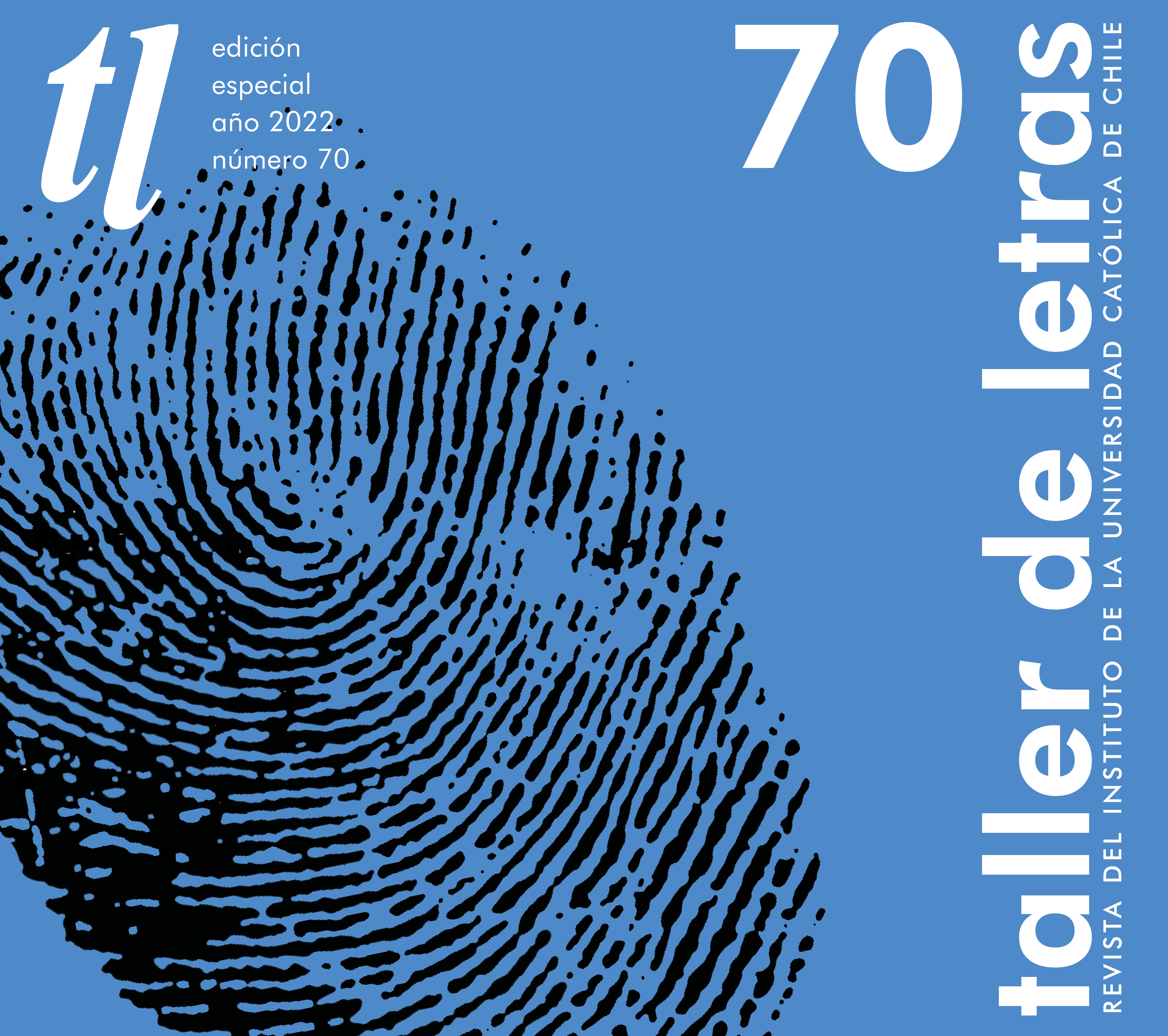Rubén Darío en Chile: burguesía y producción poético-intelectual
Contenido principal del artículo
Resumen
Este artículo tiene como propósito discutir la concepción sobre el trabajo de creación poética e intelectual que Rubén Darío pone en entredicho en los textos publicados durante su estancia en Valparaíso y Santiago: dos obras poéticas, Abrojos (1887) y Azul… (1888), y diversas crónicas publicadas en periódicos, especialmente uno de circulación periférica como El Heraldo de Valparaíso. Esta práctica creativa pone en tensión la figura del burgués, sujeto ascendente en las sociedades finiseculares latinoamericanas, que, en el campo de la creación artística e intelectual, se opone a la del sujeto creador. La hipótesis es la siguiente: Darío cuestiona el estatuto superficial, descomprometido y mercantil de la obra de arte que predomina en la escena cultural chilena, principalmente a través del recurso de un género menor como la crónica, anticipando un debate que se daría con aún más fuerza durante el periodo de vanguardia de los años veinte. Propone, en cambio, la idea de un arte verdadero, autónomo, cerrado en su propia sensorialidad estética, como alternativa al régimen de circulación de la obra de arte como mercancía. Pero este proceso es conflictivo al posicionarse como poeta y crítico cultural en un entre-lugar: en la incomodidad respecto a la condición burguesa de la cual necesita para subsistir y el deseo de postular un trabajo creativo que ocupe un lugar importante dentro de una sociedad en pleno proceso de modernización periférica.
Descargas
Detalles del artículo

Esta obra está bajo una licencia internacional Creative Commons Atribución-NoComercial-CompartirIgual 4.0.

